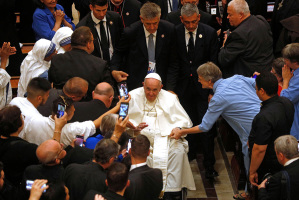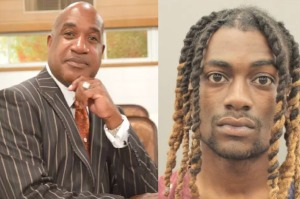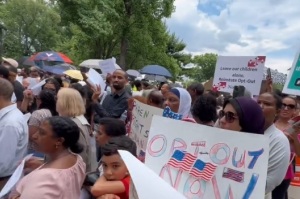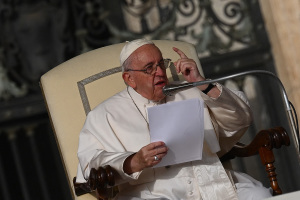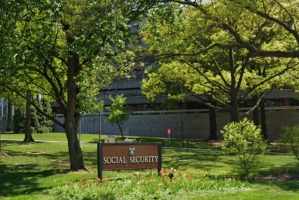Evangelicals and the US Election: A View From the Outside
How is it that Evangelicals figure so prominently in the current Republican race for its presidential candidate? That question both intrigues and troubles Evangelicals outside the United States. In their drive to secure votes, have Republican politicians turned Evangelicals into just another political subgroup, alongside seniors or gun owners?
For those of us from other countries trying to understand, it is important we frame the question properly. The U.S. is not Canada or the United Kingdom. She is different – as each of our cultures and national experiences are different, marked by ideas and memories that shape our civic and religious lives. National character and personality is, after all, peculiar to habitat, history, language and national codes and laws.
There are three powerful currents which help define America: its historical vision of manifest destiny, its long-held constitutional protection of individual liberty and its belief it was founded as a Christian nation.
Manifest destiny rises from a belief that the U.S. is a place from which God would bless the world. Puritan John Winthrop outlined it in a 1630 message while still on the ship Arbella, en route to the new world. Quoting Mathew 5:14, Winthrop referred to a "city upon a hill," a people who would be watched by the world. President John Kennedy used that in a 1961 speech reinforcing their sense of being chosen. When Americans profess their country, "is the greatest nation the world has ever known," that claim is rooted in a distinctly American vision reinforced by biblical references.
Individual liberty is the second current. America defeated England. Her people settled a resource-rich yet untamed land and created a revolutionary constitution. She battled internally over slavery, forged a capitalist and free-enterprise model for the world and became the world's only superpower. Exceptionalism, a self-identifying view gave contour to their understanding that they are unlike any others in the world.
Layered over these ideas is a prevailing view that the Thirteen Colonies were Judeo/Christian in their founding vision, statues and moral commitments. While this is disputed by many, nevertheless it fuels the debate for many who believe that it was thus founded. Their logic is that its ongoing strength and genius will be nurtured and sustained only when Christian faith is at minimum influential and at best dominant.
In more recent years, the influence of Evangelicals has been driven by the intellectual and moral winds that have caught her sail in the past century. In the first part of the 20th century, the influence of theological and social liberalism – up to and following World War II – alarmed the conservative Protestant community. They reacted. They realized what happens when a religious group is absent from public and civic leadership.
Ronald Reagan became president in 1980, aided by pastor and TV evangelist Jerry Falwell and his Moral Majority. Anxious over the rising influence of the liberalizing of main-line churches and a societal tip in favor of a more liberal view of culture and life, a surge of conservative reaction pushed forward a revised political agenda.
In recent decades the word "Evangelical" has assumed a politically conservative definition. Media and pollsters find it convenient to use the terms – "Evangelical" and "Religious Right" – as synonyms. They are not. It is true that most Evangelicals, including politically and socially conservative organizations and public leaders, are concerned about governments' policy issues like abortion, loss of prayer in schools, definition of marriage and public education. But like any religious group, Evangelicals fill a wide spectrum of views from one extreme (Christians should have nothing to do with government) to the opposite (that it should be taken over by Christians).
It is a huge mistake to assume that a socially conservative character results necessarily in either a socially conservative agenda (the "religious right"), or that all Evangelicals have the same social concerns, options or answers. U.S. Evangelicals are not a single voting bloc. There is a breadth within the Evangelical community that defies singular descriptions. For example the National Association of Evangelicals (NAE) which represents the majority of U.S. Evangelicals, recently published "For the Health of the Nation: an Evangelical Call to Civic Responsibility." Its preamble makes clear that their concerns and strategies are anything but narrow or reactionary.
The Scriptures make it clear that a biblical agenda is broad and urgent. God's concern extends from the protection of marriage and the family to justice for the poor and the oppressed, from the sanctity of human life to care for creation, and the furtherance of peace and freedom. Political or policy prescriptions alone will not solve all of our problems, but we are called to action and the renewal of human structures as we wait for the fullness of God's kingdom.
Appealing to the sub group of Evangelicals is politically irresistible. The estimated 80 million Evangelicals (26% of a 313 million U.S. population) is enough to make political campaigns salivate at the possibility of attracting such numbers.
Even so, Evangelicals are resistant at being told by their leaders how to vote. Following a January 2012 meeting of national and regional Evangelical leaders, there was a majority consensus among them to support one candidate. A few days later, Evangelicals put their votes elsewhere. So much for Evangelicals being told what to do, even by their own leaders.
For the more than 500 million Evangelicals who live outside the U.S., what might we learn from the current political debates going on in the United States?
Since the rule of Constantine in the 300s AD, church leaders have lived precariously close to showing preference and promoting one political leader over another. Billy Graham came to regret his close ties to Richard Nixon, who used Graham to his political advantage.
A prophetic distance must be maintained, allowing space between what the Spirit and the Word might say in any given situation, and the political leader or policy in question. The role of prophetic analysis requires distance so as to avoid compromise.
Then too we see how important it is in not making our rendition of the Gospel synonymous with a particular view of economics, role of government, social management or civic engagement. Charles Colson, after watching Christian leaders running to the beck and call of Nixon, warned us that the kingdom of Christ does not arrive on Air Force One.
Finally, as followers of Christ, living in real time and wrestling with real issues, we learn as we go. The Evangelical community in the U.S. is in a period of transition. Today, American Evangelicals are in the process of working out what it means to be Christian and politically responsible in public life. They believe their presence in the public square is good for their country and necessary if they are to be faithful to the Gospel.
My sense is that American Evangelicals, optimistic from the start, generous to a fault and creative in new and helpful initiatives, will find their way in witness and public influence. While current debates and political machinations are messy and noisy, their leaders understand that what is being said and done today is not the end of the matter.
So what are we to make of Evangelicals pushing their political presence forward in some cases and in others, being wooed? Some tell me they applaud this newly found influence. Others cringe at the mention of Evangelicals as a voting bloc.
What can we do from afar? Evangelicals from Egypt to Indonesia can pray for our U.S. colleagues, that wisdom and grace will fill their witness. All the while, their scenarios become learning moments as we live out our callings within our own political debates and within the agendas of our own national leadership, wanting, like them, to be faithful in serving our risen Lord.
















